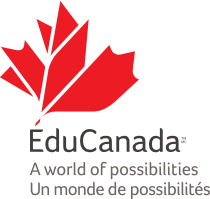
Elementary and high school in Canada
If you are a minor child applying to study in a primary or secondary school (kindergarten to grade 12), you do not need a provincial attestation letter (PAL) when applying for a study permit.
Learn more about which international students must include a provincial attestation letter.
Why pursue K-12 studies in Canada
As a parent, choosing a Canadian elementary or high school (kindergarten through grade 12) is an investment in your child’s future. Canada is known for its world-class education and spends more on education than on average across OECD countries. Canadian schools have highly educated teachers, modern technology and aim for low student-teacher ratios.
As a student, choosing to study abroad in Canada means you’ll get to learn alongside other students from around the world and from here in Canada. You’ll get the chance to make friendships that will last a lifetime while exploring a beautiful and welcoming country.
In general, elementary school in Canada runs from kindergarten to grade 6, junior high or middle school runs from grades 7-8, and high school runs from grades 9-12. This varies from province to province. Kindergarten starts as early as four years old. Most high school graduates turn 18 the year they graduate, except in Quebec where graduates would turn 17.
To arrange for your child to be placed in the appropriate school and grade, contact the ministry of education for the province or territory where you plan to live.
Study and accommodations options
There are a variety of short and long term study options available in Canada based on your needs. Whether you choose a summer camp, one semester or a full academic year, something in-between or longer, studying in Canada will be a life-changing experience!
Types of schools
Public Schools: Publicly-funded schools are managed at the local level by elected school boards. Students will learn the standard provincial curriculum and some specialized study programs. Almost all public schools have male and female students in the same classes. They offer day programs only.
Independent/Private Schools: These schools charge tuition and they must deliver the same curriculum as public schools in that province or territory. The legal status of independent schools varies across Canada. Most provinces and territories require independent schools to register with their ministries of education and follow the curriculum and other standards.
Note: For both public and independent schools, international students must pay annual tuition fees. For more details about studying in the Canadian province you are interested in, please visit:
- Canadian Association of Public Schools - International (CAPS-I) (no scholarship opportunities available)
- Canadian Accredited Independent Schools (CAIS)
Lengths of study
- Summer camps (1-6 weeks)
- Short term integration programs (1-3 months)
- One semester (5 months)
- Full academic year (10 months)
Accommodations
International students who do not have a parent, relative or family friend who will be residing with them while they study in Canada can either stay with a host family or in a boarding school environment.
Canadian host family: Homestay programs allow international students over the age of 12 to live with a carefully selected and well-matched Canadian host family. Your child will get:
- a furnished private bedroom
- three meals per day and snacks
- ‘parental’ support
- introduction to the local community
- access to recreational activities
Boarding school environment: At boarding school, your child will live and learn on campus with the support of devoted staff who supervise and guide students in a safe environment. Your child will get:
- a place to stay
- meals and snacks
- access to recreational activities
- guidance with schoolwork from teachers
After your studies
As an international student, graduating from a Canadian high school can also be your first step to eventually stay and work in Canada. Canada has many pathway programs to help you pursue post-secondary education in Canada and to stay and work after graduating from a Canadian college or university.
Learn more about options for staying in Canada after completing your high school education:
- Continue your studies by attending university or a college and vocational school
- Stay and work in Canada after your studies
Get free information
Inquire now! Interested in elementary and high school studies in Canada? Fill out this form to get more information.
- Date modified:
